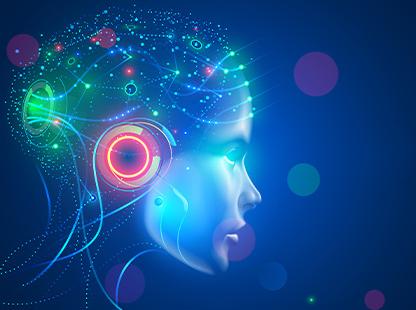
Applied AI
Explore our Research Topics
|

Cristian Borcea |
Research Areas: Mobile computing and sensing, machine learning for mobility, predictive computational advertising Online advertising is a multi-billion-dollar industry. Publishers typically sell ad impressions that appear in web pages through auctions held in ad exchanges in real-time. A publisher accepts the winning bid if it is higher than a given reserve price for an ad impression. We created a machine learning model that determines the optimal reserve prices for individual ad impressions in real-time, using a multi-task learning framework to predict the lower bounds of the highest bids. The revenue from the ads can decrease drastically if users employ ad-blockers in the browsers. To mitigate this problem, we created a personalized counter ad-blocking system that dynamically chooses a counter ad-blocking strategy, based on the predicted individual user’s probability to whitelist the page or site they intend to view in the ad-blocker. This strategy increases the revenue, while minimizing the user annoyance associated with showing too many ads. |
|
|

Mark Cartwright |
Research Areas: Machine listening, interactive machine learning, human-computer interaction, audio processing, music information retrieval Progress in machine listening has historically been hindered by limited amounts of labeled data. This is due to a variety of reasons: we don’t share and tag audio as we do images; licensing terms prevent the distribution of annotated musical audio; and, unlike with images, the average person cannot effectively label audio with just a glance and a click — it takes time to listen. To address this, we have developed and studied methods for self-supervised audio representation learning, few-shot sound event detection, crowdsourced audio annotation and active learning. Interactive Open-World Machine Listening Smart acoustic sensing powered by machine listening has the potential to provide valuable information for numerous tasks, including understanding and improving the health of our cities (e.g., monitoring and mitigating noise pollution) and natural environments (e.g., monitoring and conserving biodiversity). However, contemporary machine listening models, such as sound event detection models, can only detect a small fraction of the sounds we care about in the world. To the “ears” of these models, unknown sound classes do not exist or are confused with known classes. This results in a limited view of the acoustic world by sound event detection models that may not align to the goals of end users, hindering the machine listening’s transformative potential. We aim to develop methods and tools to detect, discover, describe and define “unknown” sound events in support of large-scale longitudinal audio analysis and model development. |
|

Hai Phan |
Research Areas: Trustworthy machine learning, data privacy and security, social good applications. Networks that share electronic health records containing a patient’s personal and clinical data promise improved continuity of care and better health outcomes. However, these networks put highly sensitive patient information at risk and expose healthcare providers to legal jeopardy. We created DeepPrivate, a system that uses machine learning techniques to protect personal health information against cyber attacks.
Ecosystem for Federated Learning Mobile Applications The challenges for federated learning (FL) systems on phones are concurrent management of multiple FL activities under resource constraints and frequent disconnections due to networking and battery issues. In addition, the system needs to provide rigorous privacy protection while retaining high model utility in real-world deployments. To address these challenges, we develop a novel FL system architecture integrated with scalable privacy-preserving solutions. This project is an impactful step to unlocking the power of millions of mobile devices through federated machine-learning applications while preserving user privacy. |
|
|

Guiling “Grace” Wang Distinguished Professor |
Research Areas: Deep learning, FinTech, blockchain technologies, intelligent transportation systems. Finance market prediction attracts much attention from both industry and academia. Despite significant efforts, the results are unsatisfactory due to the inherent stochasticity nature of the finance market driven by various unpredictable factors, such as the emotion of market participants and macroeconomic news. To address the problem, we employ sentiment analysis on the news to learn public emotion and develop a deep learning model to predict the stock price. We also incorporate the volatility index to investigate market sentiment further and utilize Wasserstein Generative Adversarial Network (WGAN) for multi-step movement prediction. The generated sequence from GAN with news context learning and prior noise can simulate the future price pattern. Extensive experiments on multiple stock indices worldwide illustrate that our model achieves consistent and significant improvements over multiple popular benchmarks on both interval and point prediction. |
|
|

Jason Wang |
Research Areas: Data mining, machine learning, deep learning, explainable AI, generative AI, Understanding Solar Astronomy with Generative AI Many magnetic field parameters related to solar eruptions including flares and coronal mass ejections are derived from vector magnetograms in the Sun’s atmosphere. However, high-resolution high-cadence time series vector magnetograms are lacking in previous solar cycles (except solar cycle 24). In this project we employ generative AI techniques to create synthetic vector magnetograms in previous solar cycles, which will enable new discoveries in solar astronomy. In addition, these generative AI techniques help (1) enhance spatial and temporal resolutions of observations taken by space-borne and ground-based instruments, (2) clean the observations by removing noises from them, and (3) create synthetic EUV images that can provide crucial information of potential radiation hazards such as radio blackouts. The project showcases many important applications of generative AI in astronomy, space physics and solar science. |
|